

Fabbro Arredi specialises in the production of high-end storage, design furniture and custom furnishings, as one-off pieces or in limited series. All the projects, designed to furnish both public and private spaces, are defined by the company’s characteristic refinement of form and material.
Our extensive experience combined with the use of advanced technology keeps us at the cutting edge, and is the driving force that pushes us to tackle new challenges in the production of unique, bespoke objects every single day.
Strong links with art and design and major collaborations with designers, architecture firms and leading brands, both in Italy and abroad, are testament to this approach.
The company started life in 1957, when thirty-year-old Elvio Fabbro used the experience gained with local joiners in the Friuli furniture-making district, north of Udine, to open his own business. In its early years, this young business produced furniture for private clients desiring to furnish their homes. After joining the company in 1991, Elvio’s son Sandro then took the helm.
Realising that the market at the time was undergoing a major change, he switched the company’s focus to a more specialised and discerning market. This in turn led to a major overhaul of production methods, including the addition of a design department equipped with the latest software, and the modernisation of the workshop with cutting-edge machinery.

Fabbro Elvio Falegnameria is created.
The company starts its business in the region of Friuli Venezia Giulia, an area with a strong woodworking tradition.

The company becomes a benchmark for the production of interior furnishing for private clients. This includes not just furniture, but also flooring, doors and windows.

Elvio Fabbro’s son Sandro joins the company, driven by a passion and vocation for the profession of woodworker he has had from a young age.
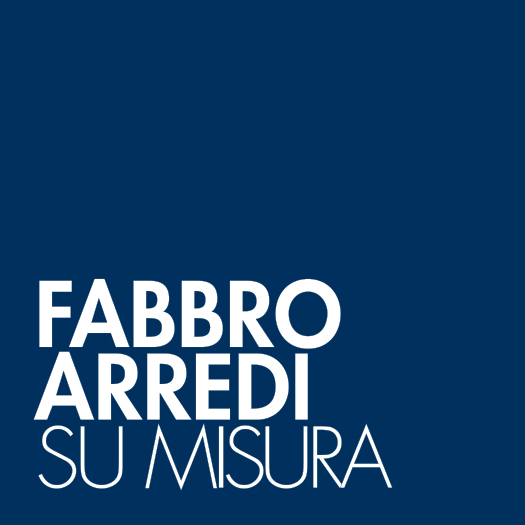
Sandro Fabbro takes over the reins of the business and, following the demands of the market, focuses on furniture for public spaces such as bars, shops and banks.
Fabbro Arredi is created.

The company expands its workforce and is modernised with technological machinery to optimise production.

Fabbro Arredi expands its market and carries out major projects for the Italian and international markets.

The company begins specialising in the production of storage furniture. Wardrobes, closets and wall units are created as unique, bespoke items.

The workshop gains a modern 5-axis CNC machine for shaping the wood and creating objects with complex forms.

The creation of Fabbro Arredi Collection: a line of storage designed by architects and designers and produced by Fabbro Arredi.
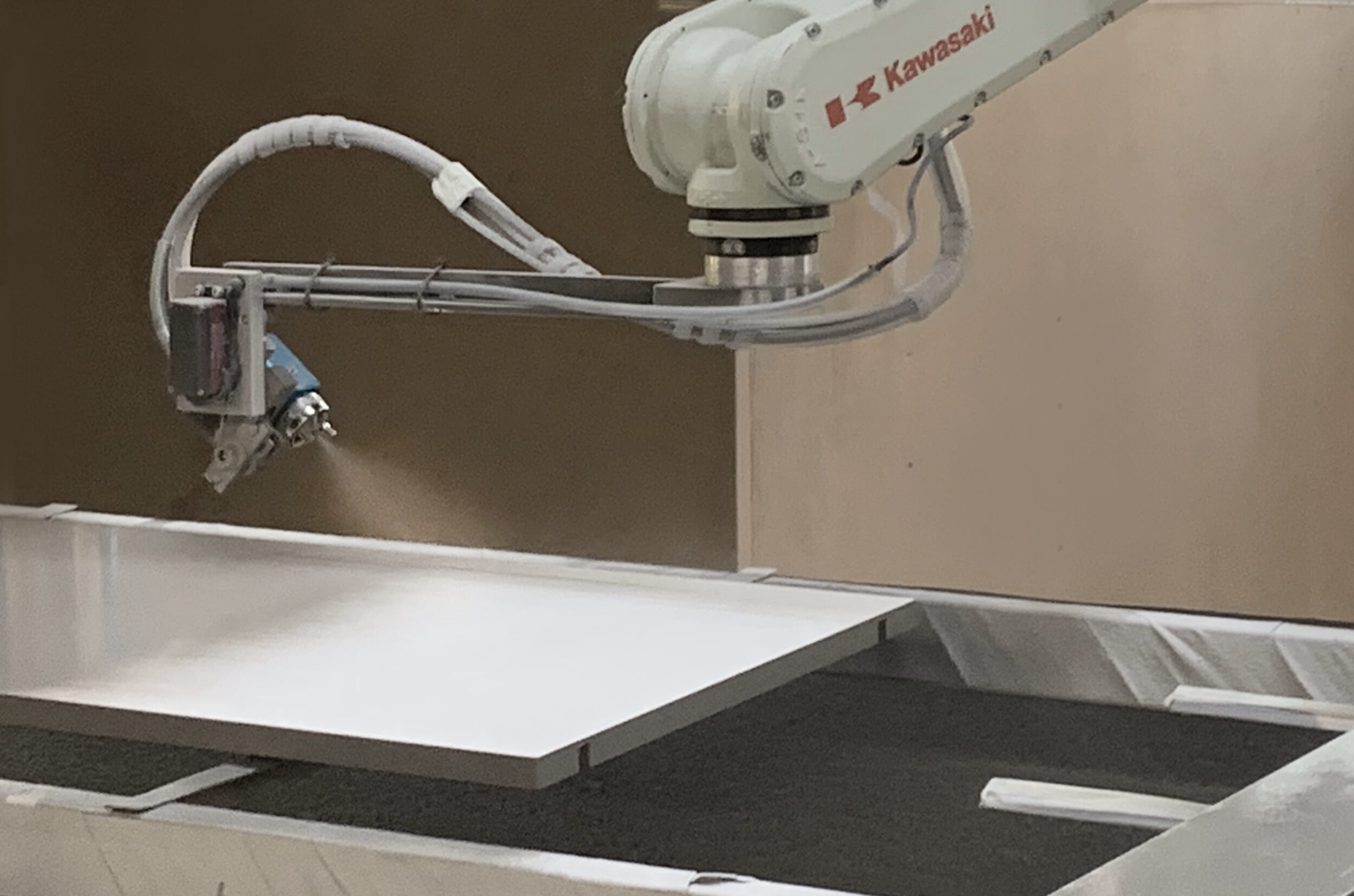
The lacquering and varnishing department is equipped with a robotic arm to maximise production and improve painting quality.
THE PRODUCTION CYCLE
The entire production cycle takes place on site at Fabbro Arredi. A team of highly skilled professionals produce high-end creations, combining traditional craftsmanship techniques with the use of hi-tech machinery such as CNC machines and a robotic painting arm. This allows quality control of the end product.
During this phase, the company is in direct contact with the client, gathering sketches, technical drawings and photographs which will help to analyse and develop the design, as well as understand any functional and aesthetic requirements. Every single request is considered unique and special, from the original idea to the completed high-end project.

Drawing on our many years of experience in processing wood, we seek out and propose the most suitable technical solutions, in terms of both construction and materials. During this phase, if necessary, a prototype can be created, so that the client can assess the object before final production.
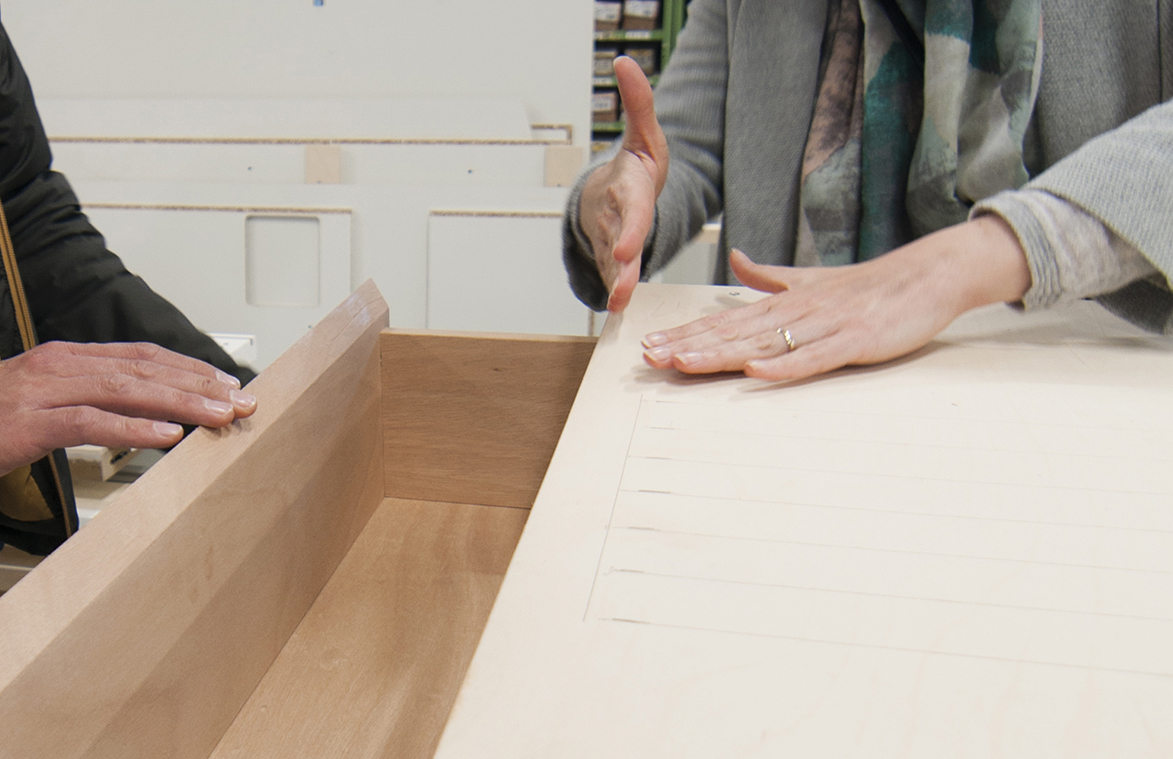
The highly qualified staff of the design department use the latest software to create a technical design based on information supplied by the client, and/or obtained by carrying out a site survey, before proceeding to the engineering phase of the project. The designs are then transferred across the network to the workshop, where the woodworking machinery is programmed.
Choosing solid wood as a material for furniture means choosing uniqueness and luxury. The wood is processed at our own workshops with tools such as the mitre saw, for cutting boards and slats without damaging the edges. The band saw, on the other hand, is mainly used for cutting shapes. In order to achieve smooth, squared-off edges, the next step is planing, using a surface planer and thickness planer.
Edge-banding is carried out with a CNC edge-bander, or by hand if there are small quantities or the work is particularly complex. The use of special glues ensures it is uniform and fully sealed. The last step is trimming the edges. Each piece is carefully checked before it proceeds to the next stage.
Veneer is what gives the furniture its external appearance. It is a thin layer of fine wood applied to the panel. The sheets of veneer are first cut and then joined to create compositions. Following this, rollers are used to apply a layer of glue to the panel, to which the layer of wood is attached. The final step is pressing, to ensure the application is uniform and long-lasting.
The process of shaping gives the wood a particular form aimed at satisfying the client’s aesthetic and functional requirements. On the basis of the technical designs supplied by the design department, the 5-axis CNC machine is programmed to shape and process the elements forming the item of furniture in 3D.
Sanding involves removing any roughness and imperfections from the surface of the wood, leaving it perfectly
smooth and ready for lacquering or varnishing. Sanding can be carried out by hand or with special machinery such as the automatic surface sander. In the latter case, the panel is placed under sanding belts of varying levels of roughness, depending on how much material is to be removed and the type of wood being processed.
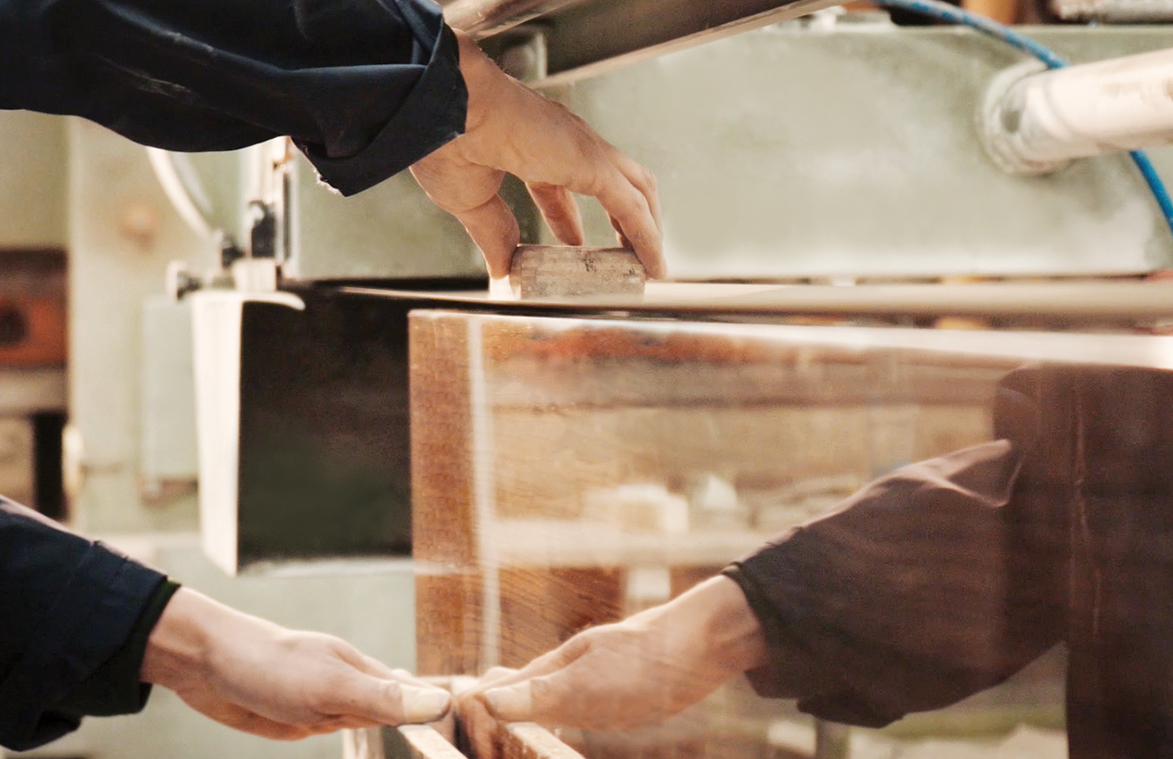
Lacquering and varnishing is carried out in an area of the workshop with a climate-controlled environment. Depending on requirements, various finishes and techniques are carried out, from matte to extra glossy. The company is equipped with a Paint Robot which acquires the 3D image of the piece to be lacquered or varnished and uses a special software to determine the trajectory of the spray. This allows consistent finishes from the first piece to the last.

Assembly is the final phase of production. The piece is assembled and fixed together with accessories that guarantee its stability. During this stage the end product undergoes stringent quality control before delivery. In most cases, pre-assembly is carried out before lacquering or varnishing, to check that all the components have been correctly made.
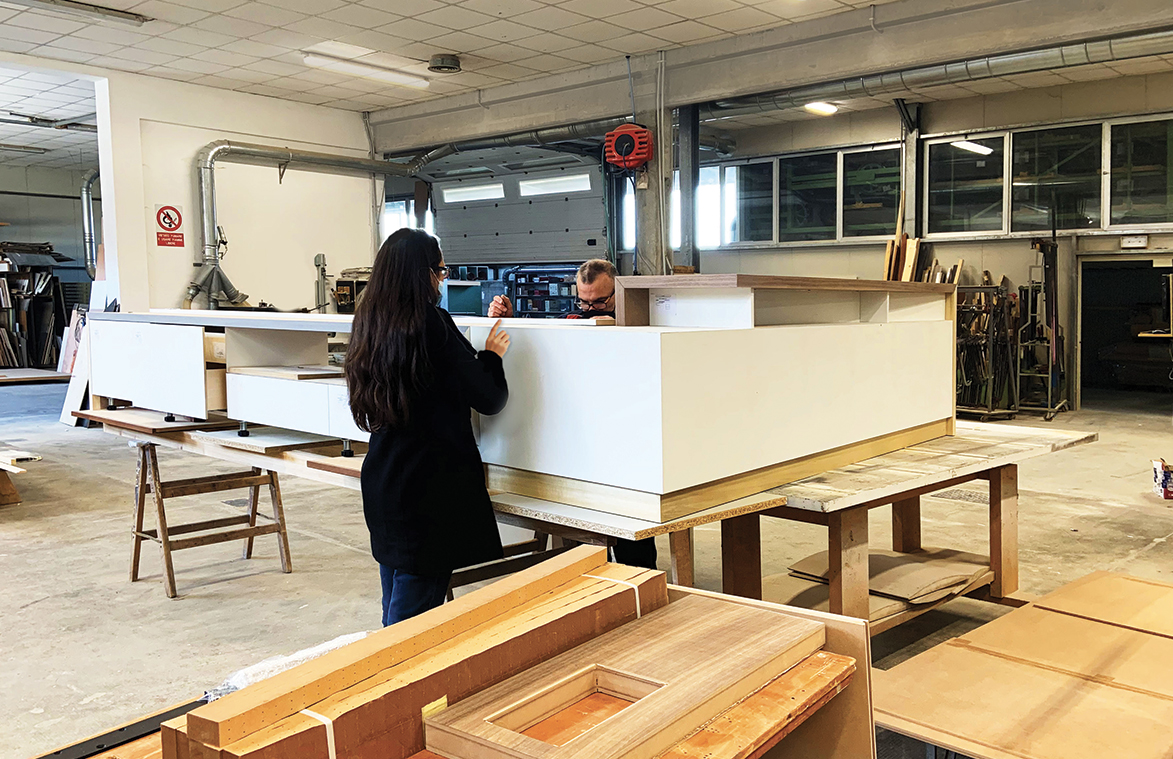
We offer a custom packing service based on the characteristics of the product and its destination. The company takes care of transportation, using its own means for short distances. For longer distances, we rely on external services, guaranteeing prompt delivery times.
Our expert in-house team handles on-site installation. For installations outside Italy, we rely on our trusted external team, who work under the instruction and control of one of our staff.
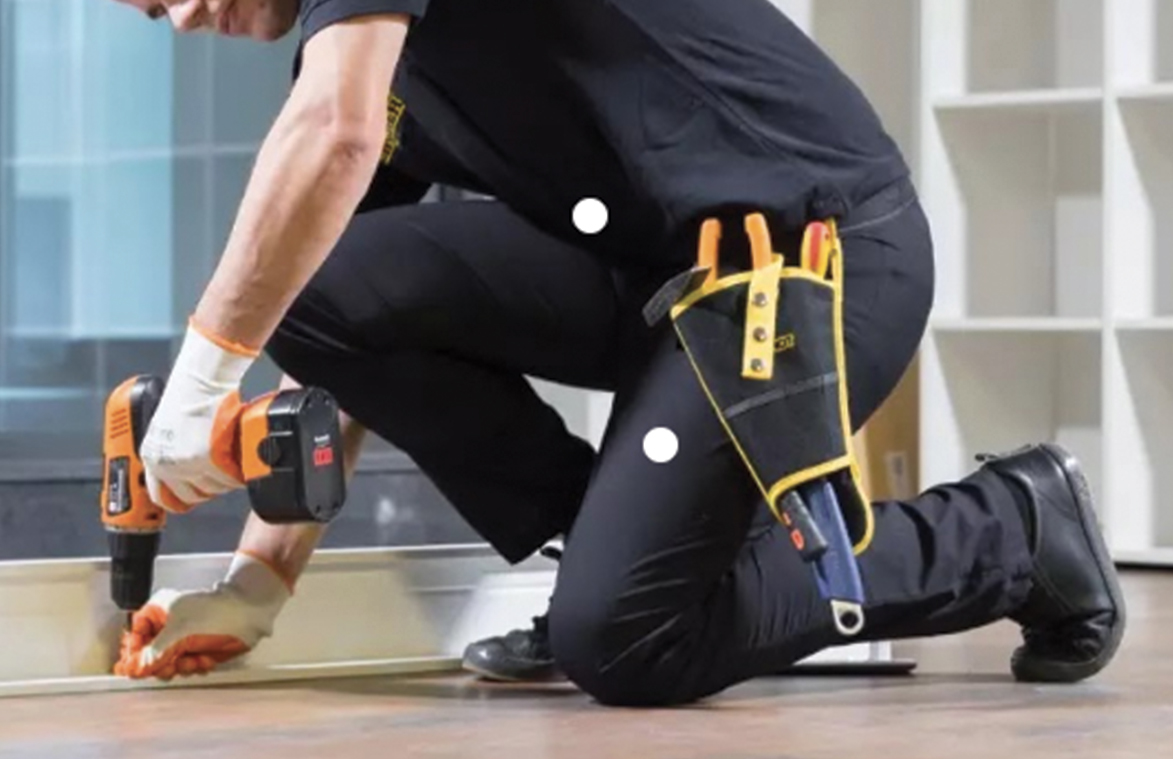
We guarantee a support service that handles any client requirements or requests following the sale; reliable and ever-present assistance. Our furniture is guaranteed for 24 months.


Fabbro Arredi has always had strong connections with the world of art.
Testament to this are the many collaborations in creating works and installations.
Versatility and an artistic sensibility are key to producing objects that fulfil the client’s request in every detail, underpinned by thorough technical research into bespoke construction solutions.
This passion also extends to biennial events held within the company, which have turned into an opportunity to visit the workshop set up as an exhibition space. In addition, the company has participated in and organised events for dialogue and discussion on topics such as Art, Architecture and Design, involving industry professionals.

Fabbro Arredi is qualified as a Bottega Scuola, a school workshop with the intention of passing down and promoting, particularly to the younger generations, the knowledge of craftsmanship.